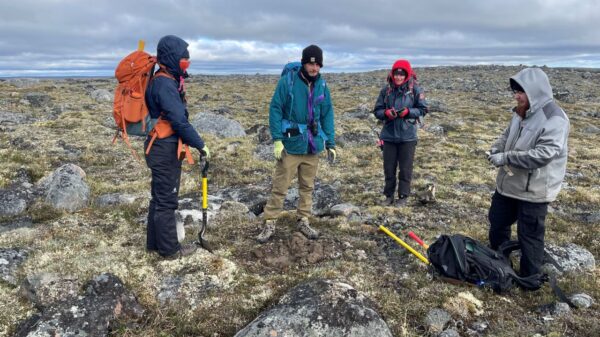Alberta is now set to kick off 2023 by becoming the first Canadian province to regulate psychedelic-assisted therapy for mental health patients.
On Wednesday, the province announced a new amendment to the Mental Health Services Protection Regulation intended to facilitate more reliable safeguards for the use of psychedelics in treating mental health conditions like PTSD and depression.
The new requirements from the Alberta government will come into effect on January 16, 2023.
Psychedelic therapy providers will need to have qualifications to provide psychotherapy and administration of these drugs will only be permitted in medical facilities and clinics with the exception of end-of-life care.
The Alberta government has made it clear through its recent press release on Wednesday that an ever-growing amount of research and data has been showcasing the efficacy of psychedelics such as psilocybin for the treatment of a variety of conditions.
However, due to the serious nature of consciousness-altering therapies such as these it feels that they need to be strictly regulated as well.
Psychedelics covered under the amendment include psilocybin, MDMA, ketamine, DMT, mescaline and LSD.
As of today, Alberta is the first jurisdiction in Canada to introduce quality standards for psychedelic assisted therapy. This is a big step forward to ensuring the community is protected while we also support innovative practices. #ableg #cdnpoli https://t.co/i257BM9gGr
— Mike Ellis (@MikeEllisUCP) October 5, 2022
Read more: Vancouver mushroom dispensaries continue to operate in legal grey area
Read more: PsyCan pushes federal policy-makers to lift restrictions on psychedelics
“The evidence is emerging that psychedelic assisted therapy holds a lot of promise in treating mental health issues like PTSD and treatment resistant depression. In order to fully realize the potential of this emerging field, we must have high standards of care in place to protect Albertans accessing care and ensure the legitimacy of the therapy”, said Mike Ellis, associate minister of mental health and addictions.
“These new quality standards create a strong foundation for the safe and effective use of psychedelic assisted therapy in Alberta as this field advances.”
The new requirements from the province will not apply to clinical research trials and to psychedelics prescribed for conditions unrelated to mental health such as cancer and chronic pain.
Patients engaged in psychedelic therapies will also require monitoring by qualified health care professionals throughout their treatments.
The new amendment will require clinics offering psychedelic-assisted therapy to be licensed under the Mental Health Services Protection Act and select a psychiatrist to act as a medical director in-house.
Only psychiatrists or physicians who have consulted a psychiatrist will be permitted to prescribe psychedelic treatments to patients.
“It’s incredible to see Alberta leading the way in psychedelic assisted therapy by making sure Albertans are protected and working on improving access to care,” said Dr. Robert Tanguay, a Calgary psychiatrist and co-lead of the Rapid Access Addiction Medicine program.

Photo via Government of Alberta.
Read more: People are taking large doses of psychedelics to treat pain: survey study
Read more: Numinus develops psilocybin-infused tea bag for clinical studies
Optimi Health Corp. (CSE: OPTI) (OTCQX: OPTHF), a company that recently completed the largest legal psilocybin mushroom harvest in Canadian history applauded the Alberta government for the recent move.
“Yesterday, the Government of Alberta made a bold and politically courageous decision to regulate the use of psychedelic therapy for patients suffering from a variety of treatment-resistant conditions,” said Bill Ciprick, CEO of Optimi on behalf of the company.
https://twitter.com/Optimi_Health/status/1578082628175106058
“They have accepted the substantial body of research, including the completion of a growing number of randomized clinical trials, which highlight psilocybin (the active ingredient in ‘magic’ mushrooms) when paired with psychotherapy as an emerging and novel approach for the treatment of a host of mental health conditions, including treatment-resistant depression, substance-use disorder, and severe anxiety associated with a terminal diagnosis,” added Ciprick.
Other companies like PharmaAla Biotech (CSE: MDMA), the only GMP manufacturer of MDMA in the country, say that the news coming out of Alberta is exciting but many questions remain. The company also says it will happily assist the Alberta government with supplying its product to patients.
“As the only manufacturer of clinical-grade MDMA in North America we are completely committed to meeting the needs of governments that intend to deliver psychedelic-assisted psychotherapy for PTSD utilizing this molecule,” said Nick Kadysh, CEO of PharmAla Biotech.
“However significant questions remain as to how the Alberta government intends to deliver these molecules to patients. We’re excited to see the Government of Alberta take a leadership role in the regulation of psychedelic-assisted psychotherapy to patients, and look forward to continuing work in establishing a safe and regulated supply.”
Read more: Psyence sends psilocybin mushrooms to Psilo Pharma in Portugal
Read more: Numinus launches ketamine-assisted therapy in Toronto
Lastly, Psychedelics Canada, a Canadian non-profit known to be the first national-level trade association for the legal psychedelics in the world expressed some concerns about the recent move from Alberta.
The non-profit says that it is worried the regulations rely too heavily on psychiatrists while shunning other well-qualified healthcare professionals such as neurologists, anesthesiologists and other worthy practitioners knowledgable about mental health, pain and substance abuse.
“We agree with Alberta that psychedelic medicine and therapy shows incredible promise, and we stand ready to assist Alberta and all other provinces and territories, in designing regulations that put patient safety first while ensuring safe, legal access. This will be an ongoing process, guided by science, and pursued in the interest of Canadian patients,” said Liam Bedard, coordinator of PsyCan.














